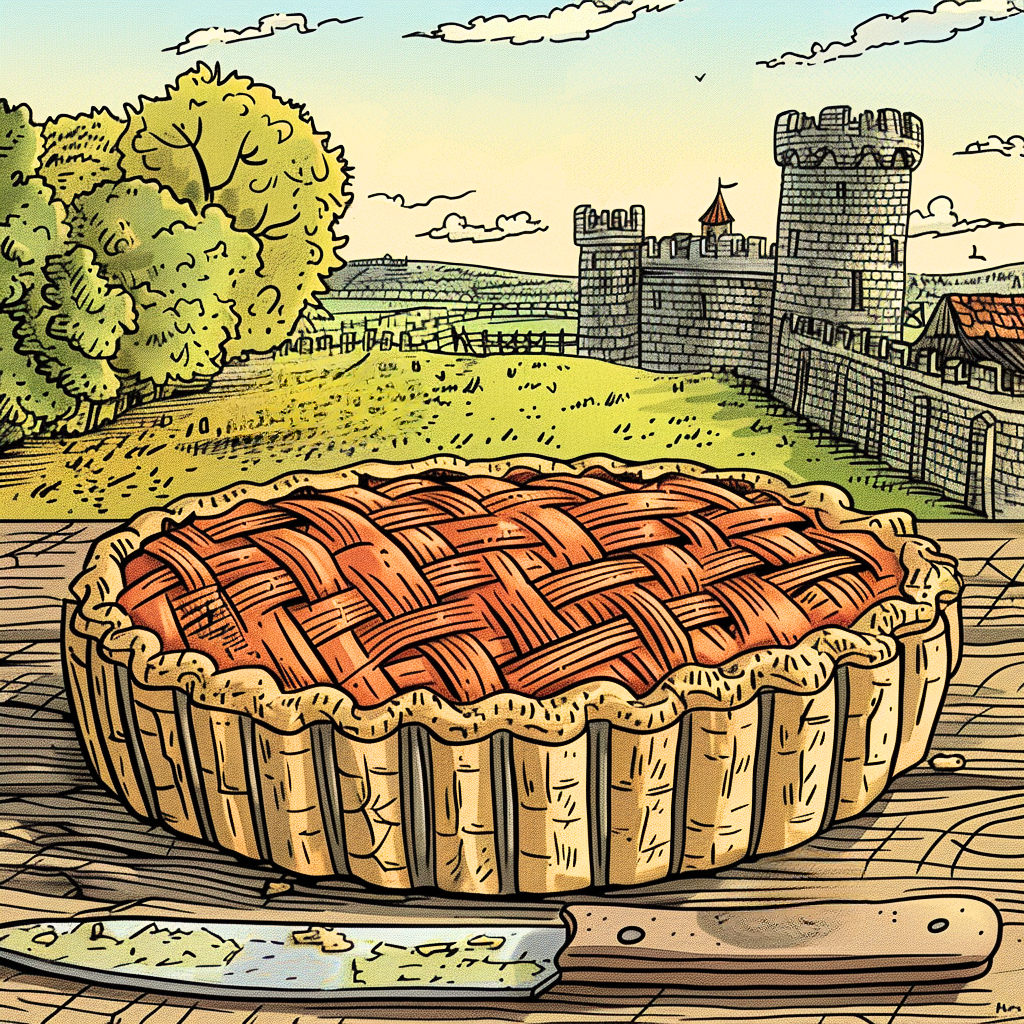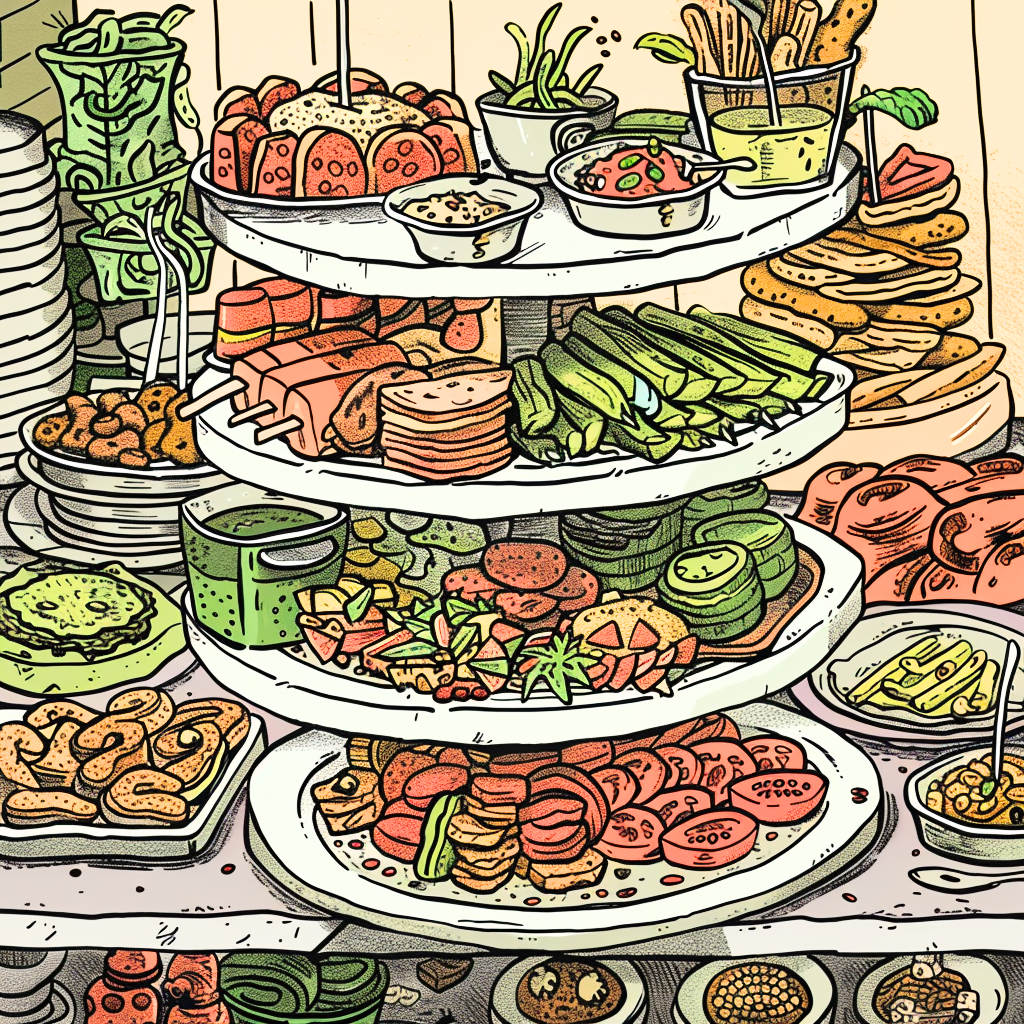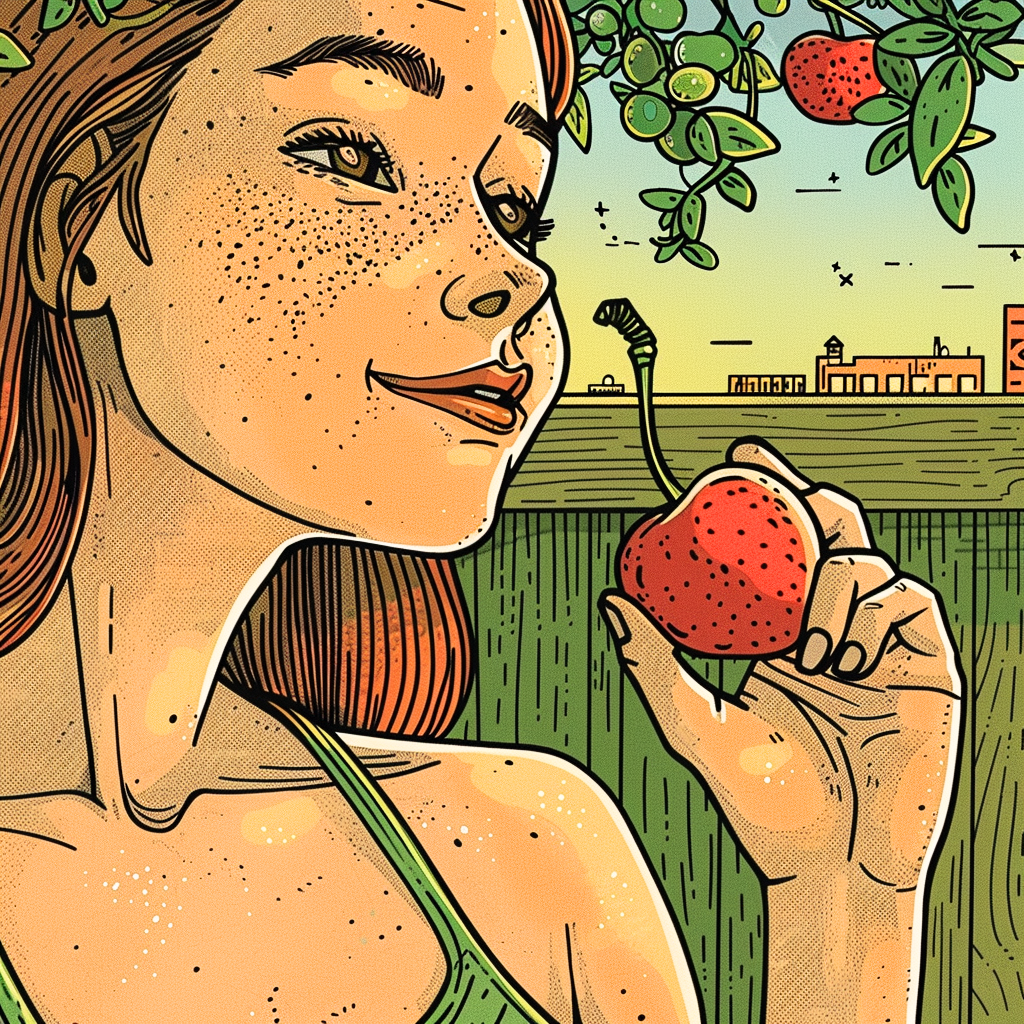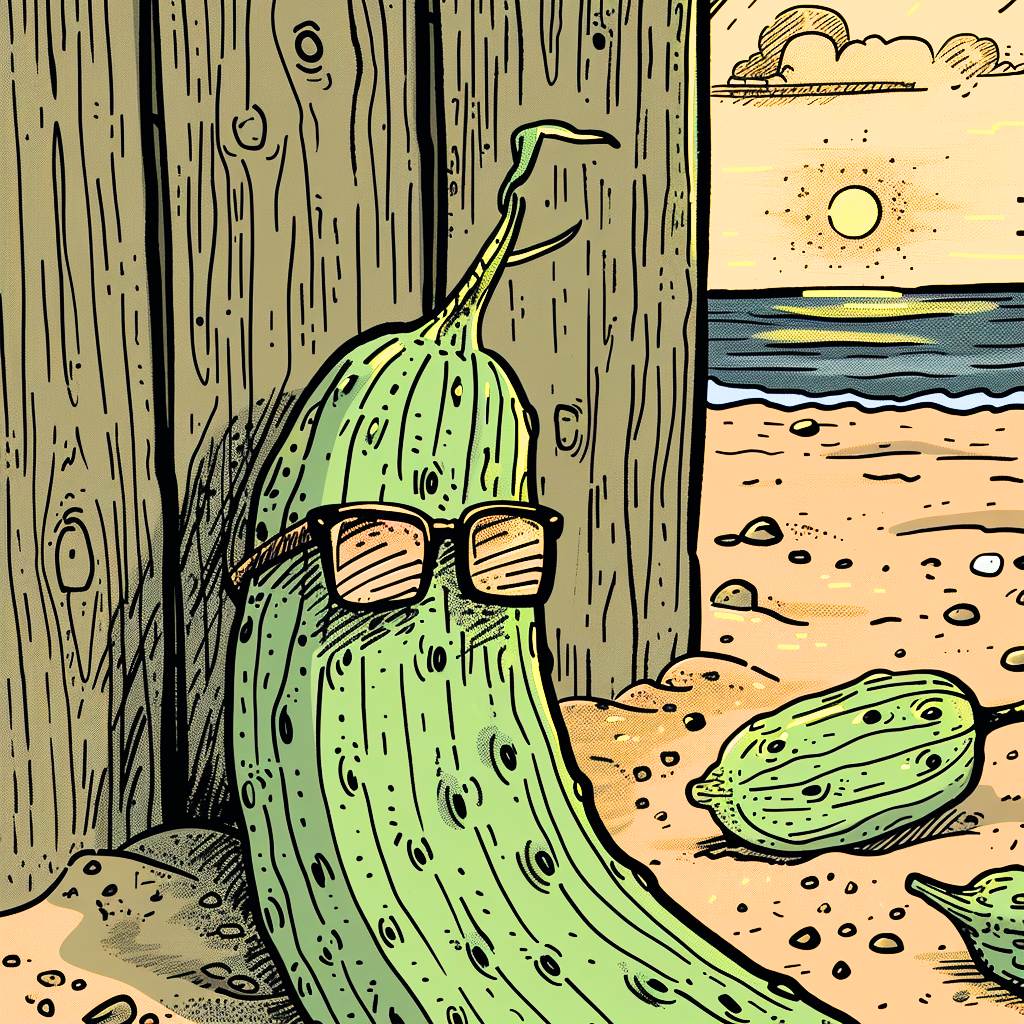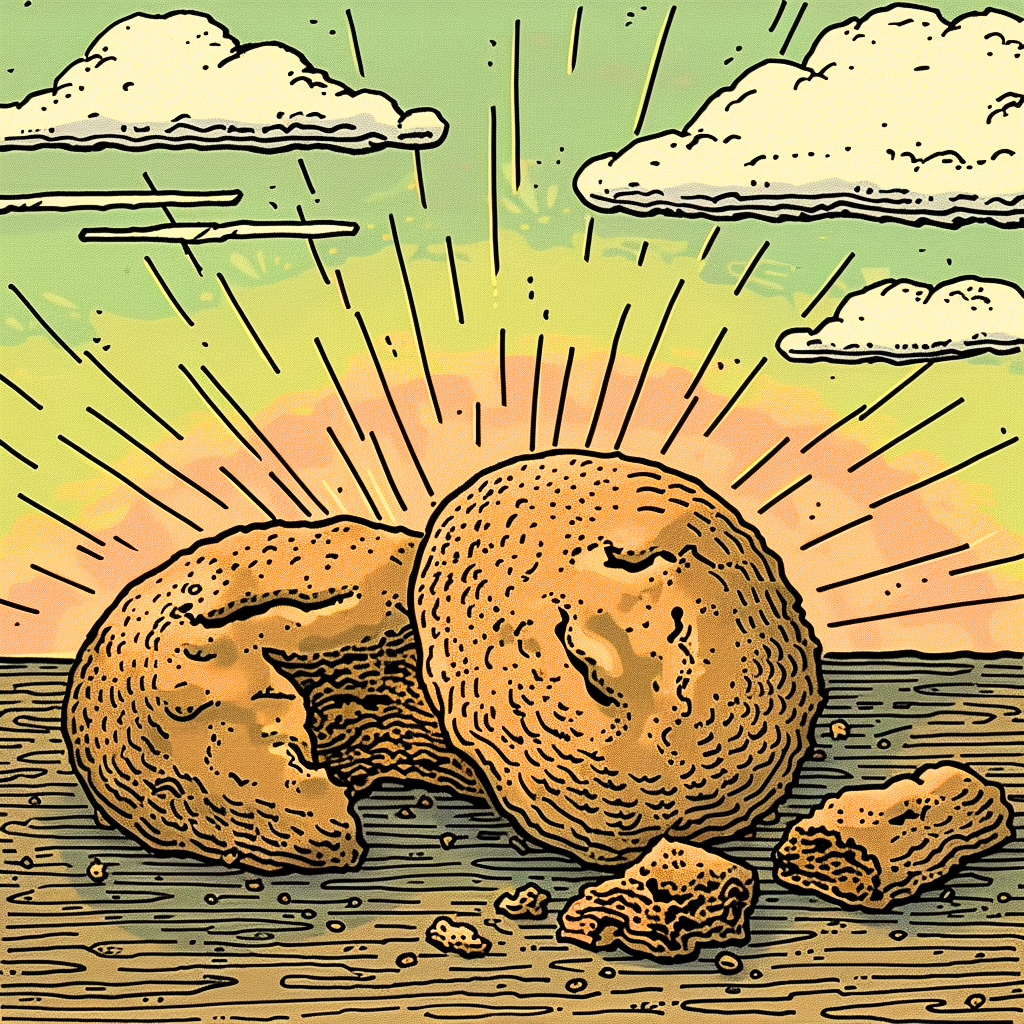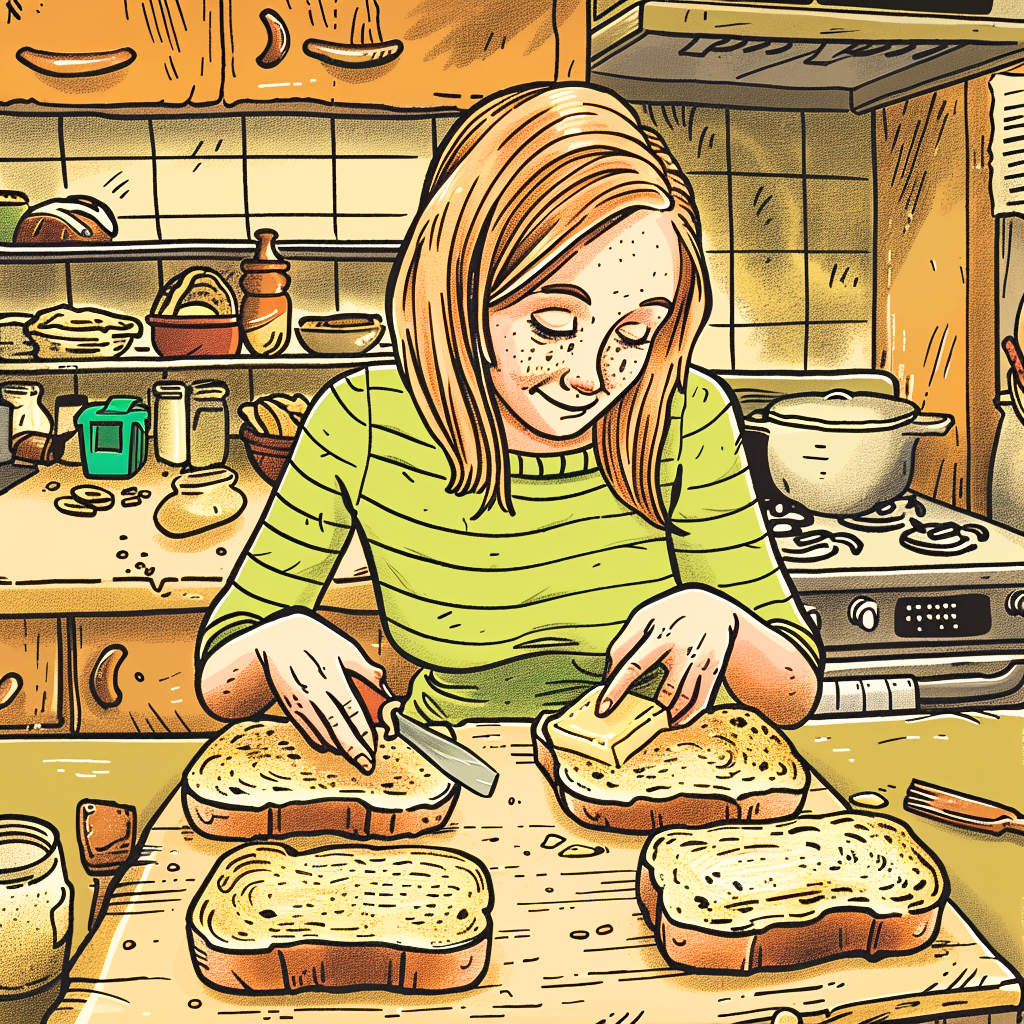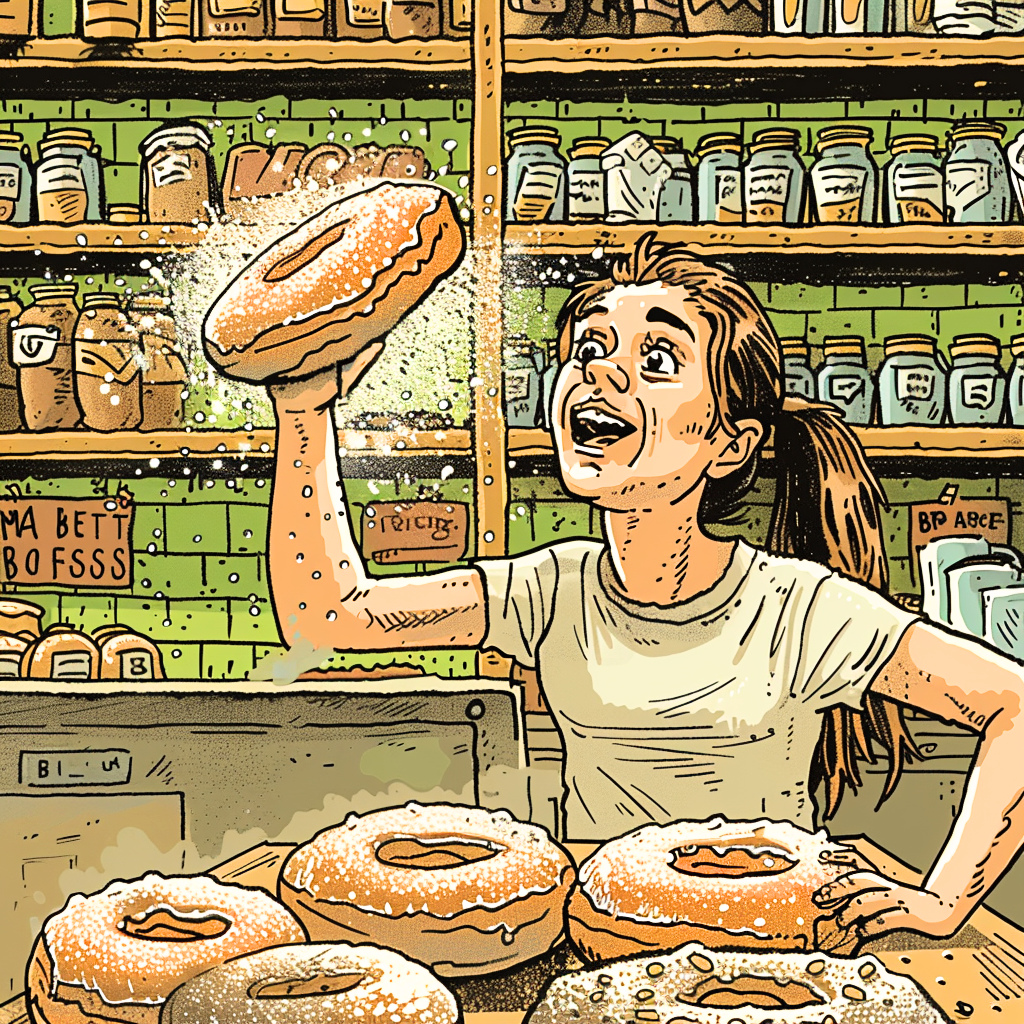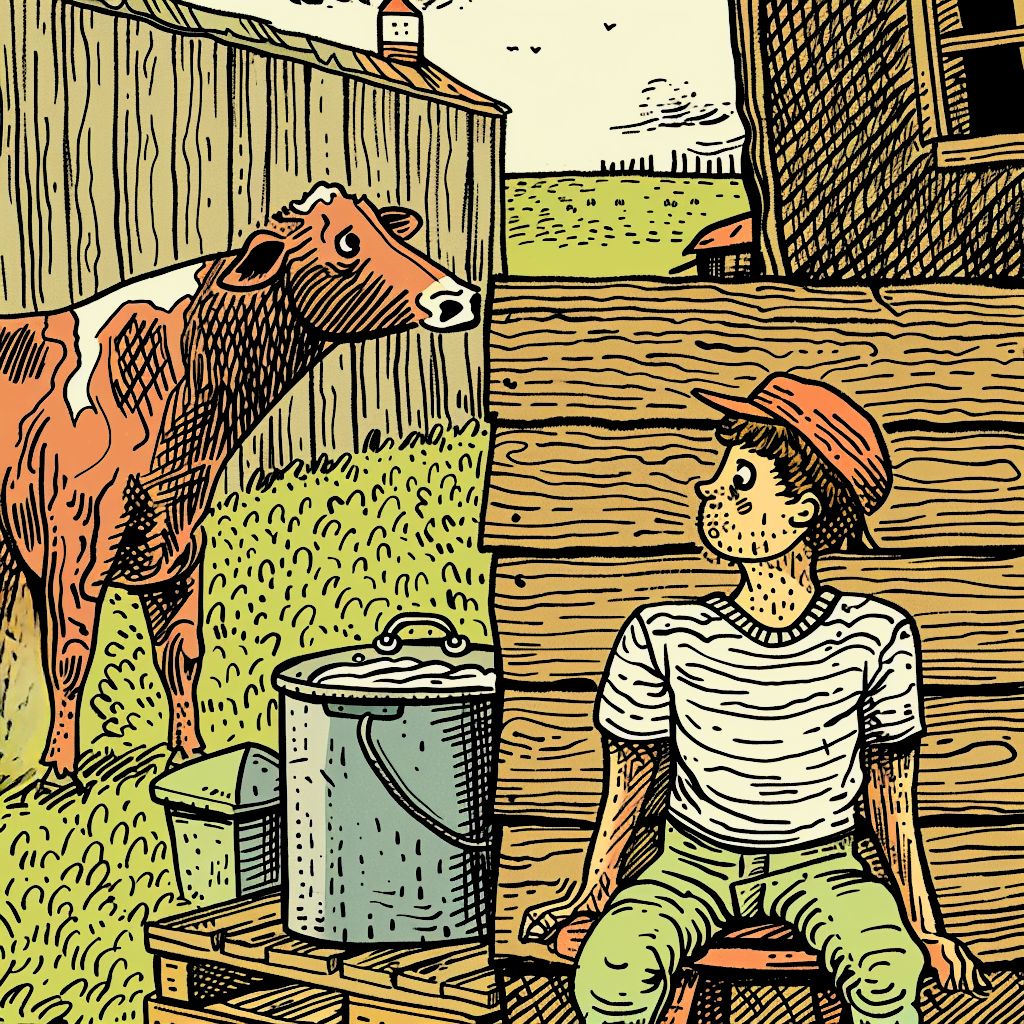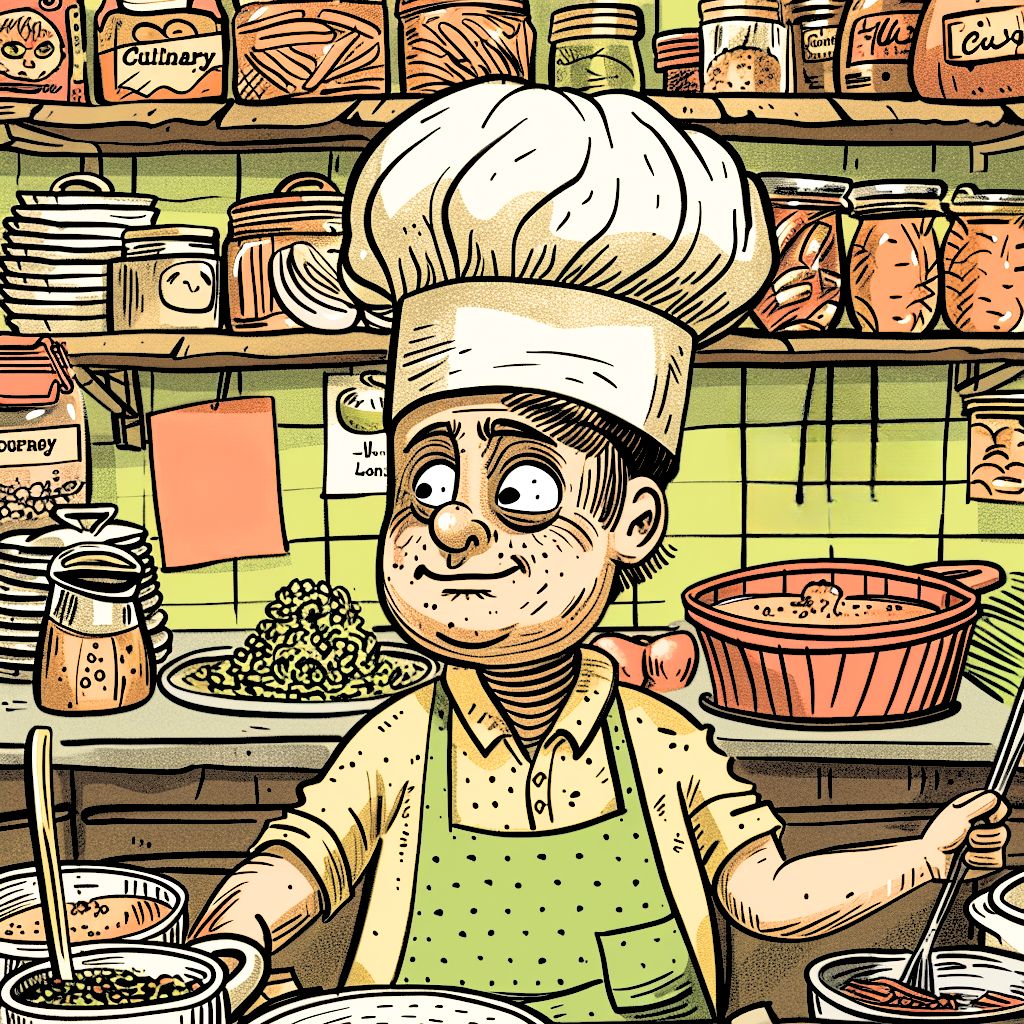Welcome to the whimsical world of food idioms, where language is as flavorful as a well-seasoned meal, and every expression is a feast for the ears! Ever wondered why we ask people to “bring home the bacon” or tell someone they are a “tough cookie”? You’re in for a treat!
In this flavorful dip into the pantry of the English language, we’ll explore 23 savory idioms that will spice up your conversations. From the sweet success of being “the cream of the crop” to the sourness of “eating humble pie,” each idiom is a recipe for expressive and colorful communication.
So tighten your apron strings, sharpen your knives, and let’s slice into the succulent world of food idioms. Get ready to butter up your brain and maybe even cook up a storm with the tasty tidbits you’ll discover here. Let’s eat our words – and enjoy every bite!
1. Eat Humble Pie
“The idiom ‘Eat Humble Pie’ serves as a culinary metaphor for those moments when you have to swallow your pride as easily as a less-than-appetizing dessert. Imagine realizing that your certainty about being right was, in fact, quite wrong.
Originating from the term ‘umbles,’ which refers to the less desirable parts of an animal eaten by lower-class individuals in medieval times, this phrase has seasoned our modern expressions with a taste of historical penance. It’s all about admitting mistakes and showing humility, making it the verbal equivalent of conceding defeat in a gracious (though slightly bitter) way.
Think of it as the digestif to a meal of missteps—it’s not the most pleasant part of the dining experience, but it’s necessary for balance and etiquette. Whether it’s retracting a mistaken statement or acknowledging an oversight, the goal is to restore harmony and maintain relationships by acknowledging one’s faults.
And truly, who hasn’t found themselves wishing they could take back words served too hastily? This idiom highlights the importance of humility and the sometimes tough pill of admitting we are not always right.
Example 1: After confidently declaring he had completed the project alone, John had to eat humble pie when his emails revealed his colleague’s significant contributions.
Example 2: Sarah insisted that she hadn’t made a mistake on the order, but after reviewing the forms, she had to eat humble pie and apologize to the team.”
2. Full Plate
When you have a “Full Plate,” life feels like a buffet overloaded with more responsibilities than you can handle. Picture yourself juggling multiple tasks, from work deadlines to family commitments, all piled up like a too-generous serving at dinner.
The phrase conjures the image of a dining plate heaped with various items, symbolizing the array of duties one must manage simultaneously. It’s about the challenge of balancing a demanding schedule without letting anything spill over.
Visualize it as the ultimate test of your multitasking skills—it’s demanding, daunting, and requires a keen sense of timing and prioritization. Whether tackling a to-do list that seems to grow by the minute or handling simultaneous projects, the aim is to navigate through this feast of obligations without dropping the ball.
Inevitably, everyone faces periods where their plate is just too full, pushing the limits of their capacity. This idiom is a nod to those bustling times and the effort it takes to keep everything in motion.
Example 1: With three kids, a full-time job, and night classes, Helen always jokes about having a full plate but somehow manages to keep everything under control.
Example 2: When asked to volunteer for the new project, Mike had to decline, explaining that his plate was already full with current commitments.
3. Bring Home the Bacon
“Bring Home the Bacon” isn’t just about the sizzle in the kitchen; it’s about earning the paycheck that sustains your household. Envision the satisfaction of providing for your family, much like the head of a household in the past would proudly bring home a slab of bacon, a valuable commodity.
This idiom dates back to a time when bringing home a substantial piece of meat like bacon symbolized successful provision for one’s family. It emphasizes the role of a breadwinner securing the financial stability of their home.
Consider this phrase as the mark of a provider—the one who steps up to ensure that the home not only survives but thrives. Whether it’s acing a job that pays the bills or pulling extra hours to cover unexpected expenses, the essence is to fulfill the role of a financial guardian.
Everyone appreciates the weight of this responsibility, celebrating the effort and dedication it takes to not just earn, but also to sustain a family’s wellbeing.
Example 1: Despite the tough economic times, Anita continued to bring home the bacon with her freelance gigs, keeping the family afloat.
Example 2: Marvin took pride in being able to bring home the bacon after receiving a well-deserved promotion at work.
4. Cup of Tea
Having a “Cup of Tea” signifies more than just a preference for a particular beverage—it’s about finding something that truly resonates with your personal tastes. Imagine settling into a comfy chair with a perfect brew that just hits the right spot.
This expression is a polite British way of indicating personal preference, often used in the negative to decline something that doesn’t suit one’s taste tactfully. It’s a way of acknowledging that not everything is for everyone without causing offense.
Think of it as the art of choosing your ideal scenario or activity. Whether it’s opting out of a high-energy outing in favor of a quiet evening at home or picking projects that align with your skills, the goal is to engage with what genuinely appeals to you.
We all encounter choices that aren’t our cup of tea, reminding us of the importance of knowing and respecting our own and others’ preferences.
Example 1: Skydiving? That’s definitely not my cup of tea; I prefer something a bit closer to the ground.
Example 2: I tried to get into jazz music because all my friends seemed to love it, but I finally accepted that it just wasn’t my cup of tea.
5. Sour Grapes
“Sour Grapes” describes a situation where someone downplays a desire for something they cannot have, masking disappointment with disdain. Picture yourself eyeing the last piece of pie, only to dismiss its appeal once it’s snagged by someone else.
This term hails from one of Aesop’s fables, where a fox, unable to reach some grapes, declares them unappealing rather than admit defeat. It captures the human tendency to minimize the pain of rejection by pretending the outcome was undesirable from the start.
Think of it as the psychological self-defense mechanism in play—rationalizing away the sting of not getting what we want by belittling its value. Whether it’s a job promotion that went to a colleague or an exclusive membership that remains out of reach, the essence is to save face by affecting disinterest.
This idiom sheds light on our capacity to handle disappointment gracefully—or not—and serves as a reminder of the importance of honesty in self-assessment.
Example 1: When he didn’t get the lead role in the play, Tom dismissed the production as amateurish, a clear case of sour grapes.
Example 2: She claimed she preferred staying at her current job, but her comments about the new firm suggested sour grapes after they chose another candidate.
6. Cherry Pick
“To Cherry Pick” means to select only the best or most desirable items from a group, much like plucking the ripest cherries from a tree. Envision yourself sorting through a basket, choosing only the juiciest, most luscious cherries for your pie.
The phrase often applies in contexts where people sift through data, information, or a group of individuals to extract what benefits them most, potentially ignoring the rest. It’s about the search for perfection or quality, highlighting discrimination in choices.
Picture this as the meticulous process of curation—whether you’re compiling the best stats for a presentation, choosing players for a team, or selecting facts to support an argument. The goal is to assemble the most appealing package, even if it doesn’t represent the whole truth.
This idiom illustrates the natural human inclination towards bias in selection, and it is a useful reminder to consider the fairness and completeness of our choices.
Example 1: The company was accused of cherry-picking data to support their product’s supposed benefits, ignoring studies that showed no effect.
Example 2: As the coach began to cherry-pick players for the finals, it became clear that not everyone would get a fair chance based on merit alone.
7. The Proof is in the Pudding
“The proof is in the pudding” encapsulates the idea that the true value or quality of something can only be judged through its practical use or outcomes, not merely by its initial appearance or theory. This idiom underscores a universal truth: real-world results speak louder than preliminary assessments or promises.
The phrase is a modern shortening of the older saying, “The proof of the pudding is in the eating.” Historically, a “pudding” wasn’t just a sweet dessert, but could be a savory dish similar to sausages, made by boiling or steaming a mixture of meat and other ingredients in a casing. Over time, the meaning of “pudding” has evolved.
In the United States, “pudding” commonly refers to a creamy, sweet dessert made from milk, sugar, and a thickening agent. Meanwhile, in the UK, “pudding” can denote both these sweet desserts and various savory dishes like black pudding or Yorkshire pudding.
Think of this idiom as a reminder of the importance of experience and experimentation. Whether it’s rolling out a new product, implementing a business strategy, or even adapting a new recipe, the final verdict depends on the actual experience and the satisfaction it delivers, not the anticipation or speculation surrounding it.
This practical wisdom is applicable in numerous scenarios, advocating for judgment based on evidence and results rather than impressions and expectations.
Example 1: Although the company’s new software looked promising, the proof is in the pudding—only after it passes the user testing phase will they know if it can actually meet their clients’ needs.
Example 2: He claimed that his new diet and exercise regimen would improve his health dramatically. True enough, the proof was in the pudding when his lab results showed marked improvement.
8. Nutty as a Fruit Cake
Describing someone as “Nutty as a Fruitcake” isn’t just about whimsy; it speaks to behaviors that are as unpredictable and eclectic as the varied ingredients of a traditional fruitcake. Picture a person whose actions and thoughts are as mixed and colorful as the candied fruits and nuts in this festive dessert.
This expression draws on the rich, sometimes overwhelming, composition of a fruitcake, paralleling it with the complexity and unpredictability of individual idiosyncrasies. It’s a playful way to comment on eccentricity, suggesting a charming, if slightly erratic, personality.
Consider it a nod to the delightful unpredictability of those who march to the beat of their own drum. Whether it’s adopting unconventional hobbies, embracing unique theories, or simply living life in their own way, the essence is to celebrate the richness that different personalities bring to the fabric of human interaction.
This idiom highlights our affection for the idiosyncratic aspects of those around us, while also acknowledging that, sometimes, those peculiarities can seem a bit out there.
Example 1: Uncle Rob, who spends his weekends crafting conspiracy theories, is as nutty as a fruitcake but beloved by everyone for his unique take on life.
Example 2: With her house full of homemade gadgets and walls painted in psychedelic patterns, Jenna is often described as nutty as a fruitcake.
9. Cream of the Crop
Being the “Cream of the Crop” isn’t just about superiority; it’s about standing out as the best in a group, much like cream rises to the top of milk. Visualize a field of competitors where only the most outstanding rises above the rest, distinguished by exceptional qualities.
The idiom celebrates top-tier status, whether in academic achievements, professional milestones, or other fields of endeavor. It emphasizes excellence and the aspiration to surpass the ordinary, elevating above the standard.
Imagine this as the badge of honor in any competitive field—be it sports, business, or the arts. It’s about achieving a level of performance or quality that sets one apart from the masses, often through a combination of talent, hard work, and dedication.
This phrase serves as motivation and recognition, highlighting the rewards of diligence and skill in any pursuit.
Example 1: Among the new recruits, Mia was the cream of the crop, quickly surpassing her peers in both skill and strategic thinking.
Example 2: The novel was considered the cream of the crop this year, receiving numerous literary awards and universal acclaim.
10. Hard Nut to Crack
Tackling something as a “Hard Nut to Crack” implies facing a challenge or problem that is tough to solve, much like trying to open a tough shell to get to the nut inside. Envision yourself confronted with a puzzle or task that is as stubborn and resistant as a well-sealed walnut.
This metaphor is often used to describe complex issues or resilient opponents that require extra effort and ingenuity to overcome. It’s about the struggle and the strategies needed to achieve breakthroughs in difficult situations.
Think of it as the mental gymnastics or strategic planning session before a major breakthrough. Whether it’s deciphering a complex code, solving a difficult business problem, or dealing with a stubborn individual, the aim is to emphasize the perseverance and clever thinking required.
It’s a common metaphor in both personal and professional contexts, reminding us that not all obstacles are overcome easily, and some require a more thoughtful approach.
Example 1: The legal case was a hard nut to crack, but the lawyer’s innovative approach finally led to a breakthrough.
Example 2: The old safe in the attic proved to be a hard nut to crack, resisting all attempts to open it without the original combination.
11. Go Bananas
“Go Bananas” is more than just monkeying around; it’s about letting loose and expressing wild excitement or anger. Picture the chaotic energy of a troop of monkeys leaping and screeching in a frenzy, perfectly capturing the essence of this phrase.
Originally a lighthearted way to describe losing control in either joyous celebration or sheer rage, the expression plays on the energetic antics typically associated with our primate cousins. It’s a vibrant metaphor for the moments when emotions overflow, whether in exhilaration at a concert or frustration in a traffic jam.
Think of it as the emotional equivalent of a burst of confetti—unexpected, messy, but undeniably full of life. Whether it’s cheering wildly at a game or having a meltdown over spilled coffee, the goal is to paint a picture of unrestrained emotional expression.
This idiom adds a playful element to descriptions of extreme reactions, reminding us of the human capacity to occasionally slip into uproarious displays of feeling. If you’re intrigued by this lively expression, you might also want to explore our article on Monkey Idioms, which explores more primate-inspired phrases.
Example 1: When the team won the championship, the entire city went bananas, celebrating in the streets until dawn.
Example 2: Oliver went bananas after he discovered his flight had been cancelled for the third time in a row.
12. Cool as a Cucumber
“Cool as a Cucumber” isn’t just about temperature; it’s about maintaining composure under pressure, as refreshing and serene as a crisp slice of cucumber on a hot day. Visualize someone facing a high-stakes situation with such calm, they might as well be lounging by the poolside, cucumber water in hand.
This phrase encapsulates the art of staying calm and collected no matter the circumstances. It hails from the cucumber’s ability to stay cool to the touch, even in heat, making it a perfect symbol for unruffled poise.
Consider this the hallmark of the unflappable personality—unaffected by stress or turmoil. Whether it’s navigating a heated debate or handling a sudden crisis, the aim is to remain as tranquil and soothing as the vegetable itself.
It’s a quality highly valued in high pressure environments, emphasizing the power of calm in achieving clarity and making sound decisions.
Example 1: Despite the chaos of the emergency room, Dr. Elise remained cool as a cucumber, efficiently directing her team through the crisis.
Example 2: In the midst of the heated argument, Jason stayed cool as a cucumber, which helped de-escalate the situation.
13. That’s the Way the Cookie Crumbles
“That’s the Way the Cookie Crumbles” is used to express the inevitability of how situations unfold, much like observing the unpredictable breakage of a cookie. It’s about accepting the random, sometimes disappointing ways in which things can happen, without fuss or complaint.
The idiom reflects a philosophy of resignation and acceptance, acknowledging that, just like a cookie, life’s events can break in unexpected and uncontrollable ways. It’s a verbal shrug to the randomness of outcomes, whether it’s a minor mishap or a significant life event.
Think of it as the stoic acceptance of life’s less predictable moments. Whether dealing with a lost job, a failed project, or just a bad day, the emphasis is on moving forward without dwelling on the frustrations.
This phrase is often used to soothe disappointment, promoting a resilient attitude towards the ups and downs of life.
Example 1: After the team lost the game despite their best efforts, the coach simply said, “Well, that’s the way the cookie crumbles,” and began planning for the next match.
Example 2: She was disappointed not to win the raffle prize, but shrugged it off, commenting, “That’s the way the cookie crumbles.”
14. Sell Like Hotcakes
“Sell Like Hotcakes” captures the essence of something being sold rapidly, as if it’s as desirable as freshly made hotcakes on a busy morning. Envision a product flying off the shelves because it’s just that irresistible to customers.
This expression hails from 19th-century America, where hotcakes, now commonly known as pancakes, were a popular item at fairs and church breakfasts. Their high demand makes them a perfect metaphor for anything that’s incredibly popular and quickly disappearing from stores due to high consumer interest.
Think of it as the pinnacle of market success. Whether it’s the latest technology gadget, a fashion trend, or a viral toy, the idea is to emphasize the frenzy of eager buyers. It’s a term especially beloved in marketing, highlighting the triumph of hitting just the right note with your audience.
This idiom is perfect for illustrating the overwhelming success of products or ideas that capture the public’s imagination.
Example 1: As soon as the new smartphone was released, it started to sell like hotcakes, with lines stretching around the block at every store.
Example 2: Her debut novel sold like hotcakes, quickly making its way onto bestseller lists around the country.
15. Butter Someone Up
“Butter Someone Up” is not about the dairy spread, but rather the act of flattery to gain a favor. Picture someone spreading butter on toast, smoothly and evenly; this is how one might lay on the compliments to sweeten someone up before making a request.
The origins of this phrase are debated, but one possibility is that it derives from an ancient Indian custom of throwing balls of clarified butter at statues of the gods to seek favor. Today, it’s used to describe the act of flattering someone with the intent of getting something in return.
Imagine this as the social lubricant in negotiations or interpersonal interactions. Whether it’s praising a boss before asking for a raise or complimenting a friend before requesting help, the aim is to pave the way for a request with kind words.
This idiom serves as a reminder of the strategic use of charm and diplomacy in achieving personal goals.
Example 1: Before asking for a weekend off, Jeremy spent the day buttering up his supervisor by praising her leadership skills.
Example 2: She knew she’d need her brother’s truck for the move, so she started to butter him up with compliments about his new haircut and clothes.
16. Cry Over Spilled Milk
“Cry Over Spilled Milk” suggests the futility of being upset over things that cannot be changed, much like lamenting over milk that’s already been spilled. This phrase encourages looking forward instead of dwelling on past mistakes or misfortunes.
The origin of this idiom goes back to medieval Europe where spilling milk was more significant due to its value as a scarce resource. Today, it’s used more broadly to represent wasted regret over any minor past errors or accidents.
Think of it as the wisdom of emotional economy—saving your emotional energy for things that you can actually influence or correct. Whether it’s a missed opportunity, a broken dish, or a minor misunderstanding, the focus is on moving on and not getting stuck in regret.
It’s a useful perspective in maintaining mental health and resilience, focusing on constructive responses rather than wallowing in unproductive sorrow. If you enjoy this outlook on handling life’s small setbacks, you might also find delight in our collection of Funny Idioms, where humor meets wisdom.
Example 1: After dropping his phone screen-down on the pavement, he sighed and said, “No use crying over spilled milk,” and went inside to find out if it could be repaired.
Example 2: She was initially upset about missing the flight, but quickly realized that crying over spilled milk wouldn’t help find a solution.
17. Sugarcoat something
“Sugarcoat something” means to make an unpleasant or difficult situation seem more palatable by adding superficially pleasant or agreeable elements, much like sprinkling sugar over a bitter medicine. It involves presenting facts in a way that seems less harsh or more acceptable than they actually are.
This phrase is especially relevant in situations where the truth might be too stark or unwelcome. It’s a common tactic in both personal communications and professional contexts, such as marketing or corporate announcements.
Imagine it as the conversational equivalent of a sweet glaze over a tart dessert. Whether it’s delivering bad news with a smile or dressing up a disappointing report with optimistic language, the aim is to ease the receiver into accepting difficult realities.
This idiom serves as a reminder of the power of presentation and the sometimes necessary art of diplomacy in communication.
Example 1: The manager decided to sugarcoat the news of the impending layoffs by emphasizing the potential for rehiring and future growth opportunities.
Example 2: When giving feedback on the disastrous rehearsal, the director chose to sugarcoat his words to avoid demoralizing the cast further.
18. Eat Your Words
“Eat Your Words” refers to the act of having to retract what you’ve said, particularly when proven wrong. It’s like ingesting your own spoken words as if they were a tangible substance, an experience both humbling and corrective.
This expression highlights the accountability associated with our statements and promises. It’s often used in competitive or confrontational contexts where one party insists on something only to be proven incorrect later.
Think of it as the dietary requirement of the conversational world. Whether it’s a bold claim about a sports team’s chances of winning or a boast about personal capabilities, the essence is to acknowledge a mistake and correct it, often with a dose of public humility.
This idiom encourages careful consideration before speaking and promotes integrity in admitting errors.
Example 1: After vehemently arguing that the project would fail, but seeing it succeed, Michael had no choice but to eat his words.
Example 2: She had to eat her words after repeatedly claiming the deal would never go through, only to see it finalized the following week.
19. Icing on the Cake
“Icing on the Cake” symbolizes an additional benefit or embellishment that makes a good situation even better, much like icing enhances a cake. This phrase is used when something not only meets expectations but is topped off with an extra touch of gratification.
It reflects situations where the foundational elements are already satisfactory, but an extra layer of joy or success is added, making everything feel even more rewarding.
Visualize it as the final, delightful touch on a well-planned event or achievement. Whether it’s a bonus received after a successful project or an unexpected compliment on a day that’s already going well, the aim is to denote surplus pleasure.
This idiom is often shared in moments of celebration, capturing the joy of excess in the best possible way.
Example 1: Winning the game was great, but having his entire family there to watch was the icing on the cake for Rob.
Example 2: She was happy enough with the job offer, but the generous relocation package was the icing on the cake.
20. Tough Cookie
“Spice Things Up” means to add excitement or interest to a situation that has become routine or dull, much like sprinkling spices into a dish to enhance its flavor. It’s about injecting a new element that transforms the ordinary into something memorable and engaging.
This expression is particularly apt in contexts where monotony has set in—whether in a relationship, a work project, or daily life. It advocates for creativity and innovation as means to rejuvenate and invigorate the established order.
Imagine it as the culinary twist that turns a bland meal into a feast for the senses. Whether it’s introducing a new hobby to liven up the weekend, a novel approach in a stagnant work process, or a surprise date night in a long-term relationship, the aim is to break the mold and bring a fresh zest to familiar routines.
This idiom serves as a reminder of the benefits of stepping out of comfort zones and adding a little unpredictability to our lives.
Example 1: To spice things up in their monthly meetings, the team leader started incorporating creative brainstorming sessions with fun themes.
Example 2: After years of the same vacation routine, the couple decided to spice things up by traveling to an unconventional destination.
22. Milk it
“Milk it” suggests drawing out or exploiting a situation to gain the maximum benefit, much like milking a cow to get as much milk as possible. It’s used when someone takes full advantage of an opportunity, often beyond what might seem reasonable.
This phrase is commonly applied in situations where someone is seen to be extending their moment in the spotlight or extracting undue benefits from an opportunity, whether for sympathy, fame, or tangible rewards.
Think of it as squeezing every last drop of advantage from an opportunity. Whether it’s a celebrity extending their fifteen minutes of fame, a politician using an issue for electoral gain, or someone exaggerating an injury to avoid work, the essence is to maximize the gain from the circumstances.
This idiom reflects a shrewdness in making the most of what one has, though it often carries a slightly negative connotation of overindulgence.
Example 1: After the minor accident, he decided to milk it for a few days off work, even though he felt fine the next day.
Example 2: The company was quick to milk the sudden popularity of its product, rapidly expanding its marketing to capitalize on the trend.
23. Cook Up a Storm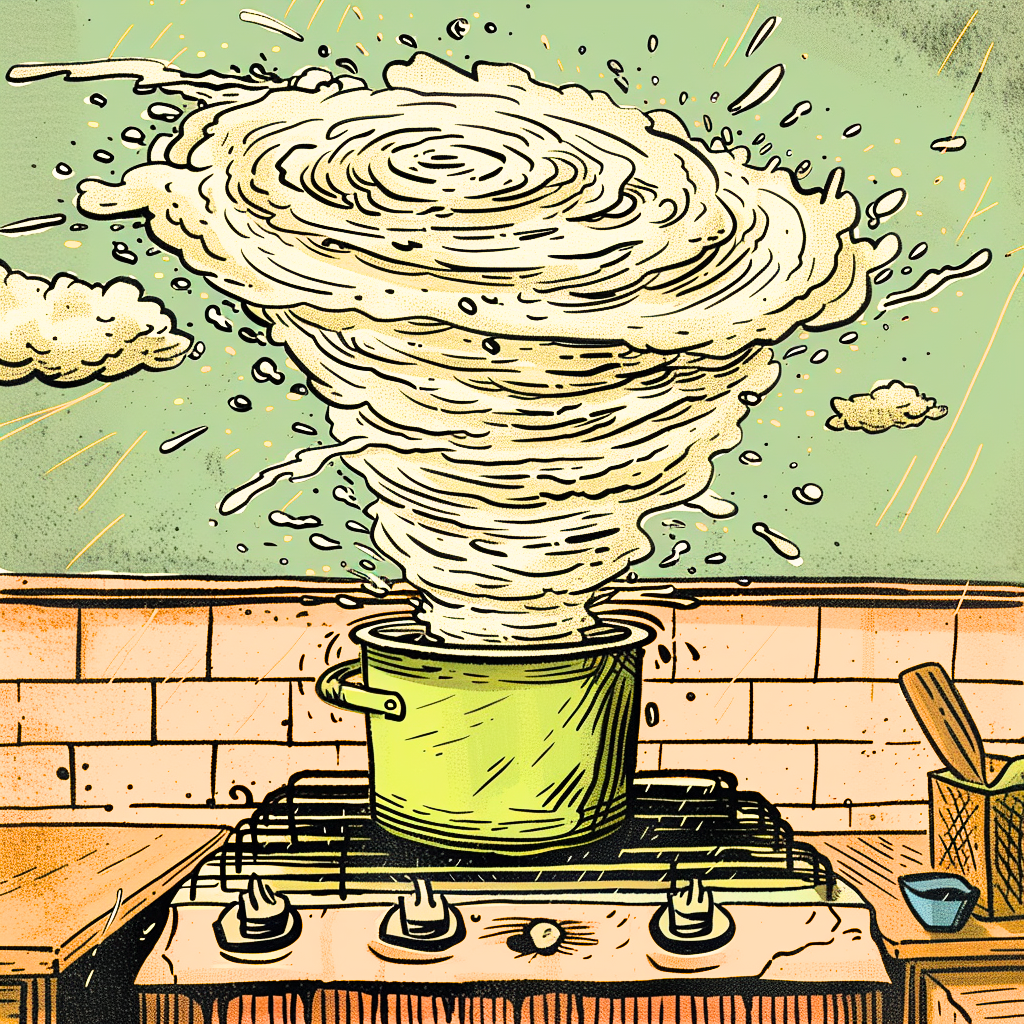
“Cook Up a Storm” is to prepare food in large amounts with great enthusiasm, or more broadly, to do any activity with intense energy and passion. Picture someone in the kitchen, bustling from one task to another, pots and pans bubbling over as they whip up a feast capable of feeding a battalion.

Hey fellow Linguaholics! It’s me, Marcel. I am the proud owner of linguaholic.com. Languages have always been my passion and I have studied Linguistics, Computational Linguistics and Sinology at the University of Zurich. It is my utmost pleasure to share with all of you guys what I know about languages and linguistics in general.


